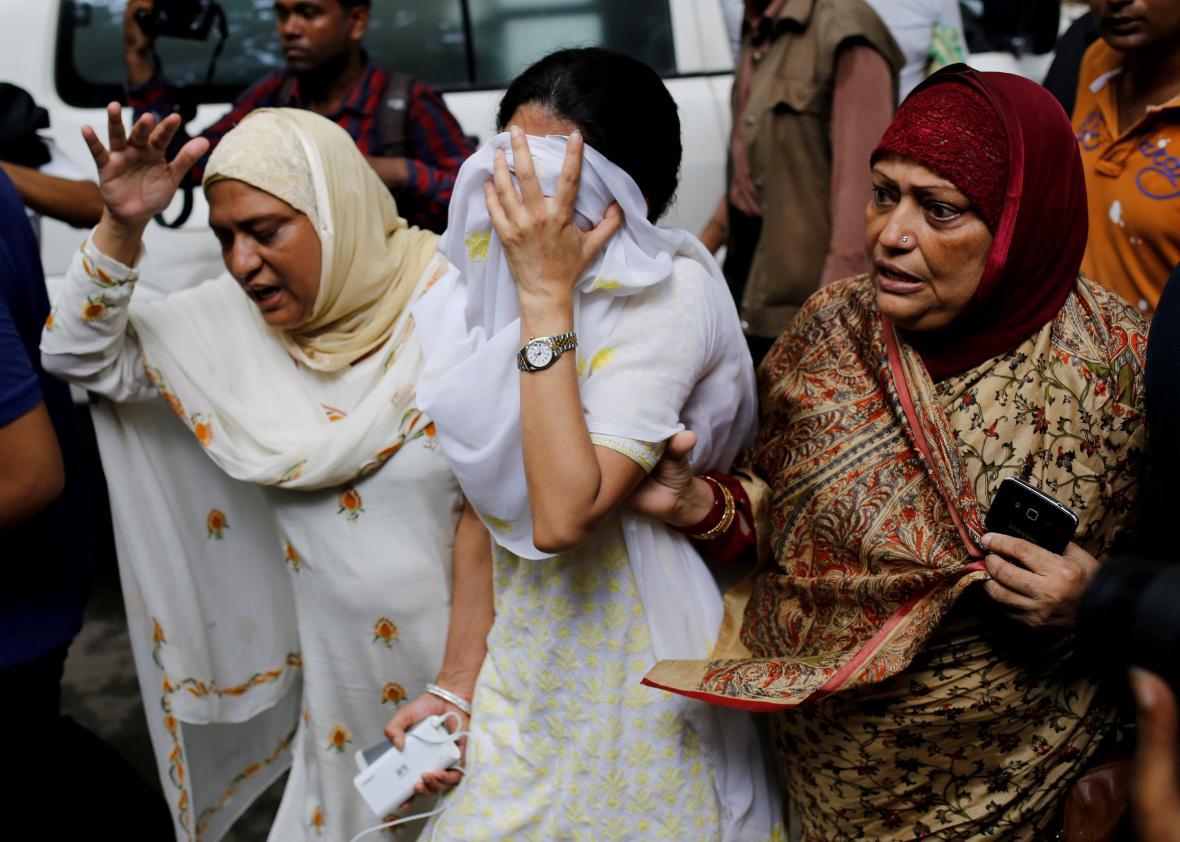A brutal attack on an upscale cafe and restaurant in Dhaka’s diplomatic area ended Saturday morning when security forces stormed the building following an 11-hour siege that left 20 hostages dead, most of them foreigners. Six gunmen were killed during the operation that saved 13 hostages and one was captured. Two police officers were also killed. Islamic State quickly claimed responsibility for what was the deadliest in a series of attacks in recent months by Islamist militants that largely targeted individuals who advocated a secular lifestyle in the majority-Muslim country and foreigners. The claim has yet to be confirmed.
Around 35 people were taken hostage at the popular Holey Artisan Bakery on Friday night. Witnesses say the militants ordered Bangladeshis to stand up and then began killing the foreigners. Even though initial reports claimed all the dead were foreigners, officials said some locals were also among the dead. One hostage who was rescued told his father the attackers didn’t kill anyone who could recite verses from the Quran. “The gunmen asked everyone inside to recite from the Quran. Those who recited were spared. The gunmen even gave them meals last night,” the father of a Bangladeshi businessman who was rescued told the Associated Press.
Although details are still scant, most of the dead had been killed by “sharp weapons,” according to an Army spokesman. The wife of an Italian businessman, for example, was killed by a machete. Initial reports claimed there were seven Italians and seven Japanese citizens among the dead.
As shocking as the attack was, experts in radical Islam saw it as predictable, considering the increase in violence over the past year against those seen as enemies of Islam. And the government did precious little about the increasingly dire situation. The Guardian explains:
Western intelligence have been nervous about a major operation for at least 18 months. Indications of a complex plan to attack a diplomatic ball last year prompted much alarm—and pressure from western capitals on Dhaka to move effectively against the militant networks existing in the unstable south Asian nation.
…
Instead of cracking down on the hardline groups which encouraged, or even sponsored, the attacks on local bloggers and minorities, the government effectively made concessions to the conservatives, with the prime minister implying those who had insulted religious sensibilities were in part responsible for their fate. Bloggers seeking police protection were ignored.
Experts say the level of coordination of the attack on Friday though should make the government reassess its oft-stated position that the militants carrying out the individual attacks in recent months all operated locally. “The continuous denial of the presence of local militant group connections with international terror groups has not been helpful,” Ali Riaz, a professor of political science at Illinois State University, tells the New York Times. “What we’re witnessing can’t be small groups coming together. It is clearly a very coordinated attack. If this doesn’t convince them to come out of denial, then I don’t know what will.”
